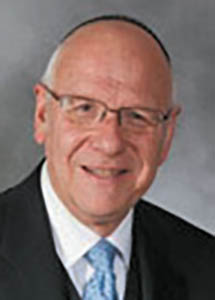
The parallels that we find between the parsha and today’s haftarah are quite striking. The haftarah is taken from the opening chapter of the Book of Melachim (Aleph) and tells of the final days of King David as the parsha tells of the final days of Avraham Avinu. Just as the parsha details Avraham’s preparations to hand over the reins of leadership to his son Yitzchak, so we read of David Hamelech’s preparations to assure that the leadership of the reign is handed over to his son Shlomo. Even the opening words of the haftarah, “V’Hamelech David zaken ba bayamim,” echo the words that describe Avraham in our parsha: “V’Avraham zaken ba bayamim.” And yet, perhaps more striking is the contrast between the two readings, and not the similarities.
Our parsha depicts an almost idyllic scene. “V’Hashem berach et Avraham bakol,” Hashem blessed Avraham with everything: A fully functional and cognizant Avraham sends his servant on a mission to choose a wife for Yitzchak; the servant succeeds in that mission; Yitzchak accepts the servant’s choice and grows to love Rivka; and this new wife, in turn, takes over from Sara in an almost seamless fashion. By the end of the portion, the Torah makes it clear that the future of the family has been secured by the unchallenged choice of Yitzchak to succeed his father. Avraham Avinu passes on with the knowledge that God’s blessing to him would be carried on by his chosen son.
The haftarah, on the other hand, paints a very different picture. Here, we read of an aging regent, so weak that he could not keep himself warm, whose weakness is utilized by his oldest surviving son, Adoniya, to rebel against his father’s choice of successor by garnering support from many former supporters of David and declaring himself king. Throughout all of this, the king is blissfully unaware of what was taking place until his wife and prophet delicately break the news to him. Whereas a vigorous Avraham Avinu took an active role in shaping the future leadership, David Hamelech’s weakness makes him take a passive role—until he is advised to make his choice public knowledge and, as opposed to the pastoral and peaceful scene described in the parsha, the haftarah portrays a king’s court filled with devious plots and wily intrigues that haunt the final days of David.
And it is precisely this contrast that allows us to appreciate even more the remarkable events that shaped the end of Avraham’s life. Our holy texts are filled with struggles for power and succession to the throne, but Avraham’s choice was never challenged. Avraham Avinu was described by Hashem as one who would teach his descendants “la’asot tz’daka umishpat,” to do kindness and justice, and David Hamelech was portrayed as one who “oseh tz’daka umishpat l’chol ammo,” one who acted with kindness and justice to his entire nation. Both merited to grow old. But the contrast of the two lives allows us to realize the blessings of peace and tranquility within one’s own family.
By Rabbi Neil N. Winkler
Parshat Chayei Sara











